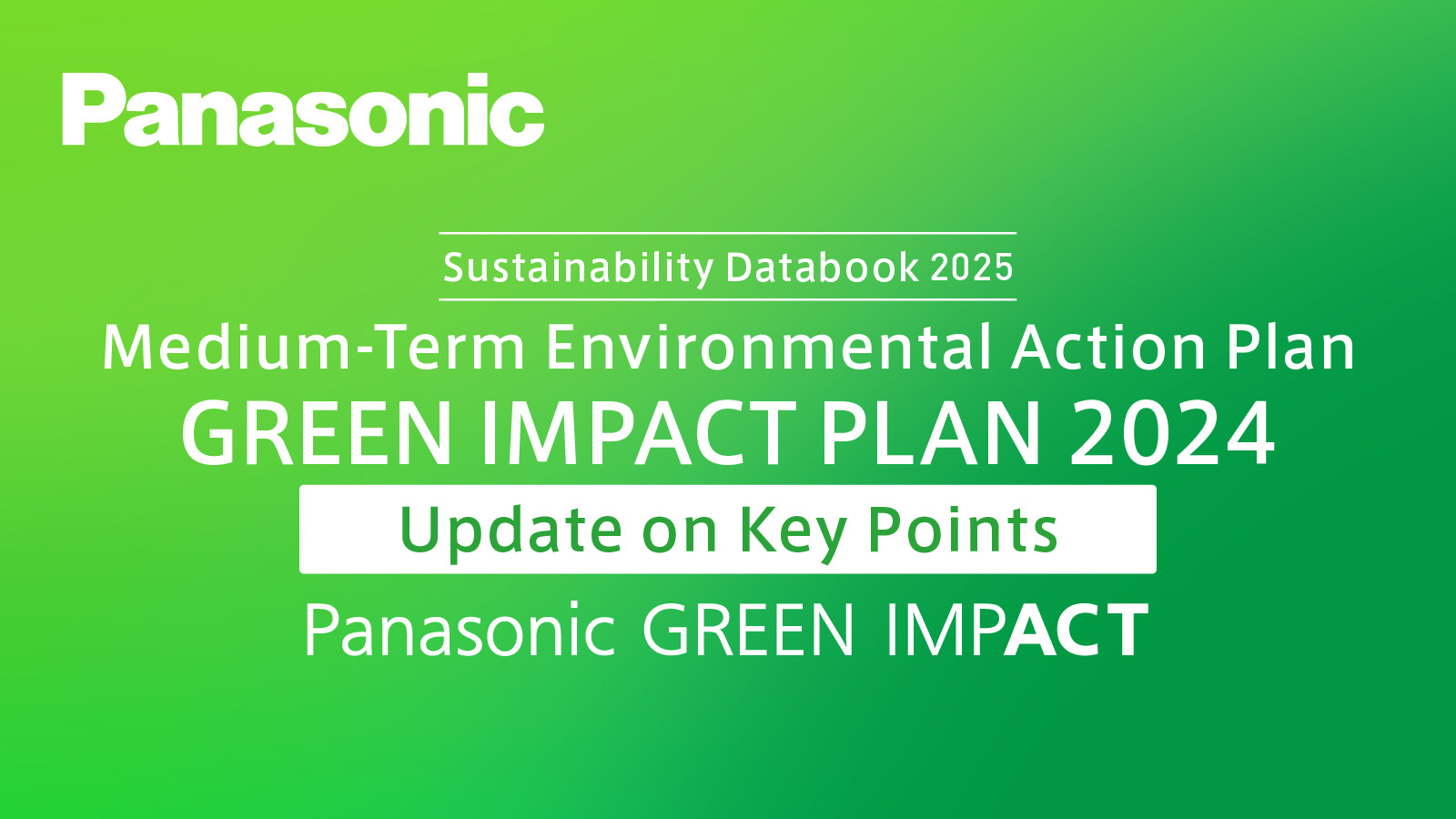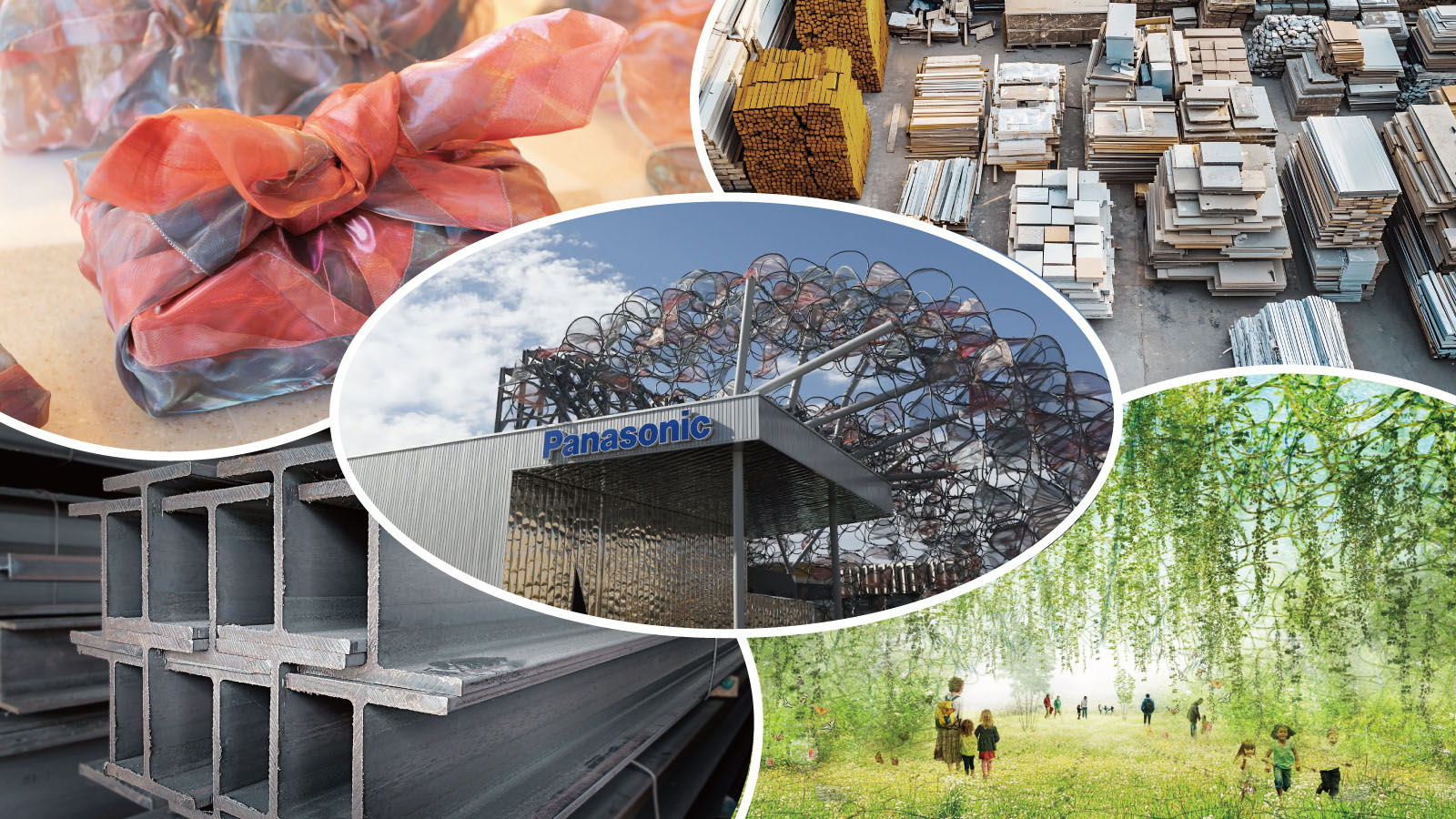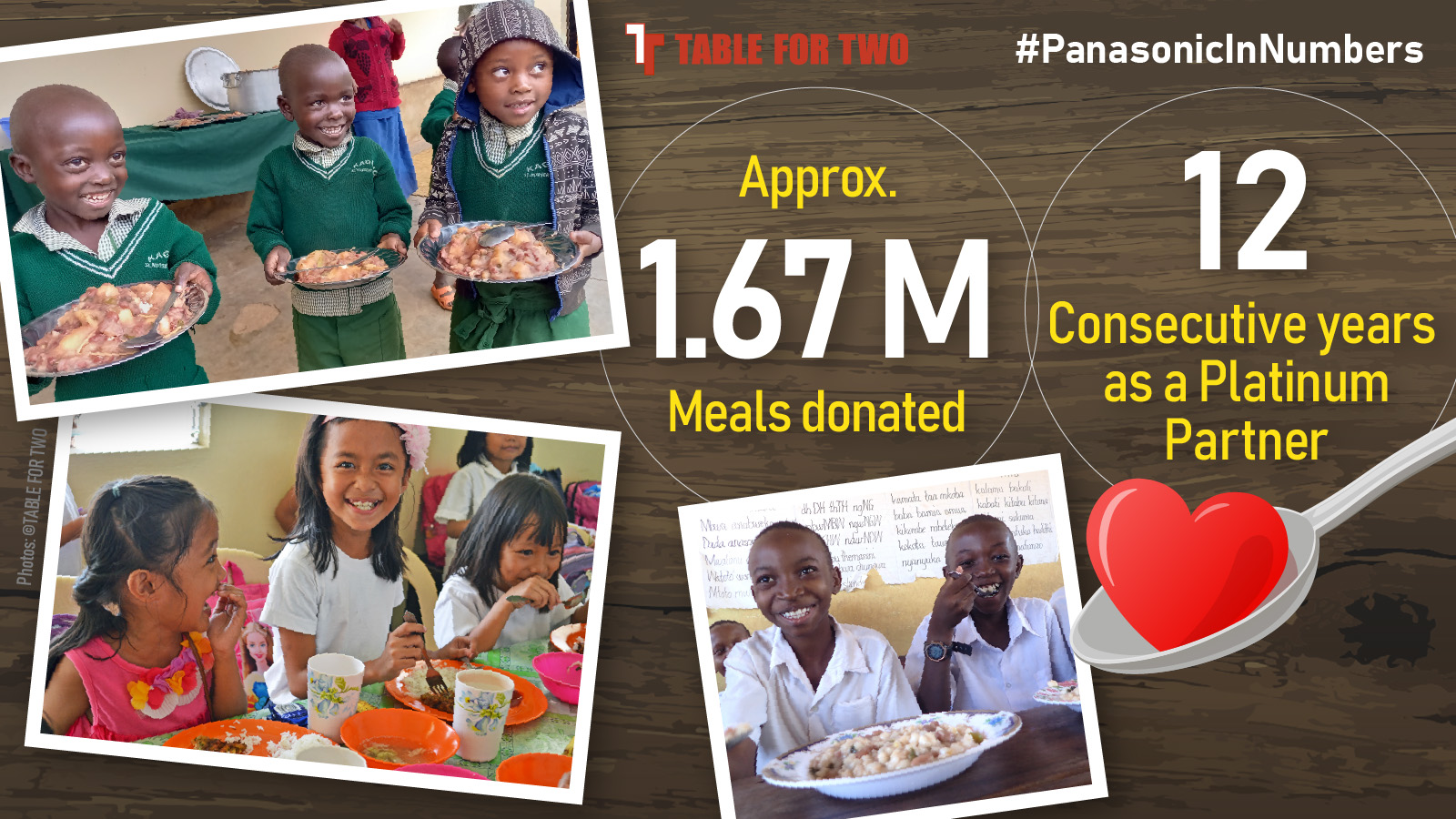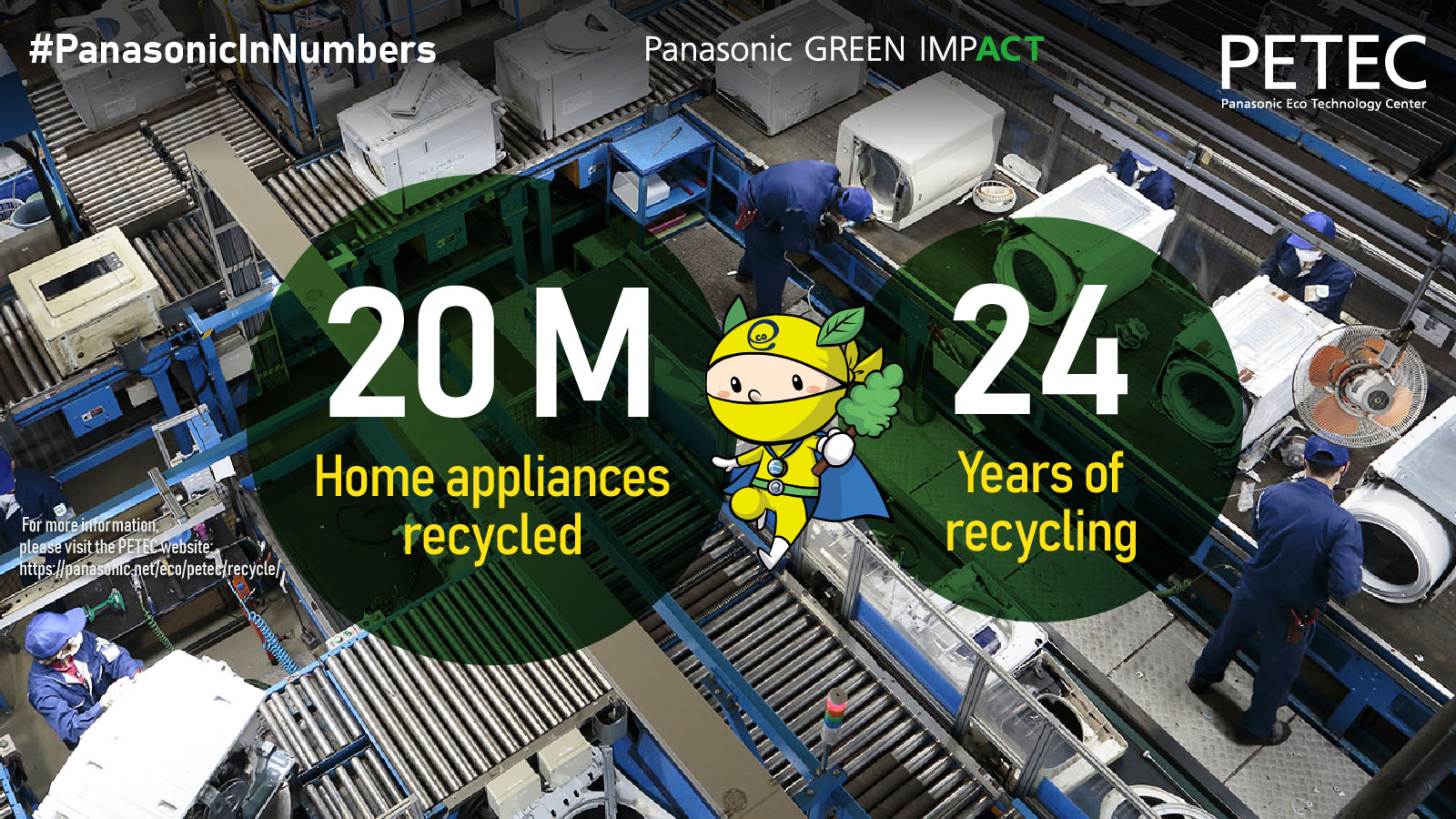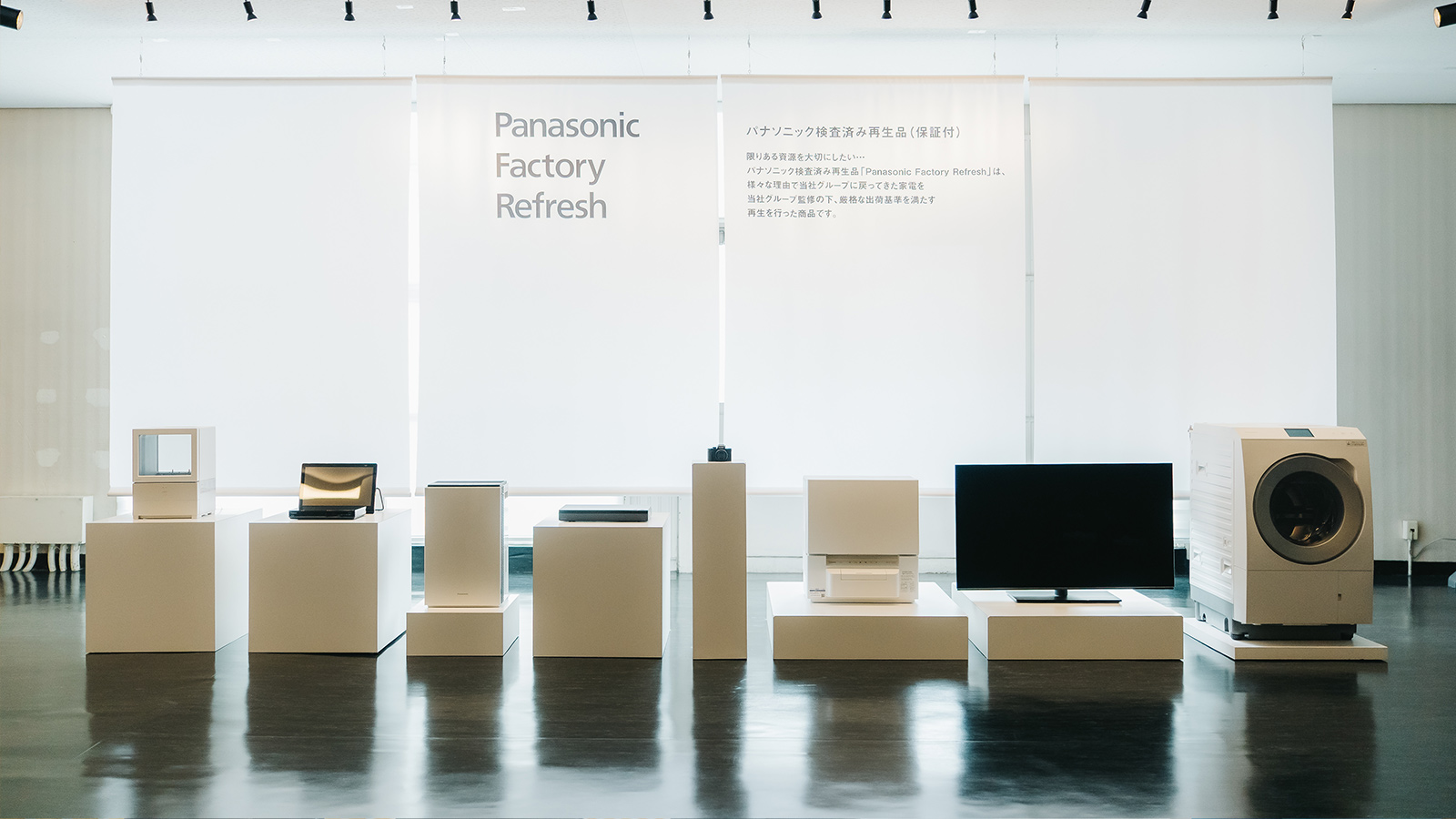In April 2022, Panasonic announced a new brand slogan, “Live Your Best.” The rollout included a TV commercial filmed on a set decorated with approximately 20,000 flowers. After filming wrapped, a Panasonic employee suggested that instead of discarding the flowers, they could be upcycled by extracting pigment from the petals and using it as dye for an original product. This idea led to a collaboration with ECOALF, the environmentally conscious clothing and accessories brand from Europe.
As the first fashion brand in Spain to earn B Corp™ certification for its social and environmental performance, ECOALF’s vision is to create the first generation of recycled products with the same quality and design as the best non-recycled products. The company applies proprietary technology to the development of new fabrics from plastic bottles, fishing nets, tires and other refuse, and its clothing and accessories are made entirely from recycled materials and/or natural materials with low environmental impact. ECOALF’s approach has led to it being officially recognized as one of B Corp’s “Best for the World,” positioning the brand in the top 5% of the 5,000 B Corps across the globe in the environment category.
Sanyo Shokai Co., parent of ECOALF Japan K.K., took up the challenge of creating the dye that was then used by ECOALF to create a special T-shirt. “When I heard the idea of dyeing T-shirts with pigment extracted from leftover flowers, I immediately got on board,” said Masatoshi Shimokawa, director of ECOALF Japan K.K. “We’ve handled dyed products before, but this was our first attempt to dye finished T-shirts with pigment from dried flowers. But we shared Panasonic’s enthusiasm to ‘recycle and repurpose items that would otherwise be discarded.’”
